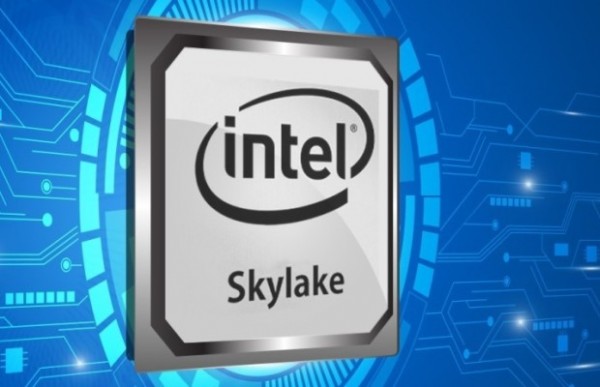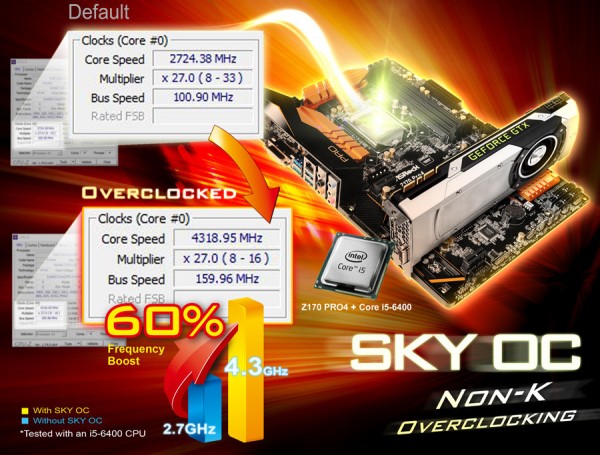Intel has now confirmed that it will indeed release a BIOS update which will disable any form of overclocking on non-K Skylake processors. According to PCWorld, Intel mentioned that overclocking non-K Skylake processors isn’t recommended, simply because they weren’t designed for it. Interestingly, this confirms the recent rumour about Intel playing a part in ASRock’s decision to issue a BIOS update which removes its SKY OC technology.
Ever since the inception of non-K Intel CPU overclocking technology, a vast majority of PC enthusiasts have been rejoicing due to the fact that they could finally overclock their inexpensive non-K Intel processors. The most notable technology being ASRock’s SKY OC, which not only enabled users to overclock non-K Skylake processors, but also allowed non-Z motherboard overclocking as well. Unfortunately, ASRock was also the first motherboard manufacturer to remove its non-K overclocking technology in light of Intel’s disapproval.
However, there are a handful of PC enthusiast – mainly “overclocking masters” – that are glad to see Intel finally taking down non-K Skylake overlclocking technology. Why? Because without the ban, Intel’s high-end processors would simply become obsolete. WCCFtech recently ran a performance comparison between an overclocked Intel Core i3-6100 against a stock Core i5-4690. Surprisingly, the Skylake-based i3 CPU came very close to matching the performance of the Haswell-based i5 processor. Hence, the approval by hardcore overclockers on eliminating non-K overclocking for good.
Intel’s decision to finally put a nail in the coffin of non-K Skylake overclocking is unsurprising really. The company had carried out similar “correctional” steps a few years ago when motherboard manufacturers decided to release a BIOS update which enabled non-Z motherboards to have overclocking abilities. One wouldn’t be entirely wrong to say that Intel really doesn’t like people meddling with its CPUs and chipsets. Regardless, users that have non-K Skylake overclocking technology enabled wouldn’t be affected by this change, so long as they don’t update their BIOS of course.
(Source: PCWorld, WCCFtech , Ars Technica)




